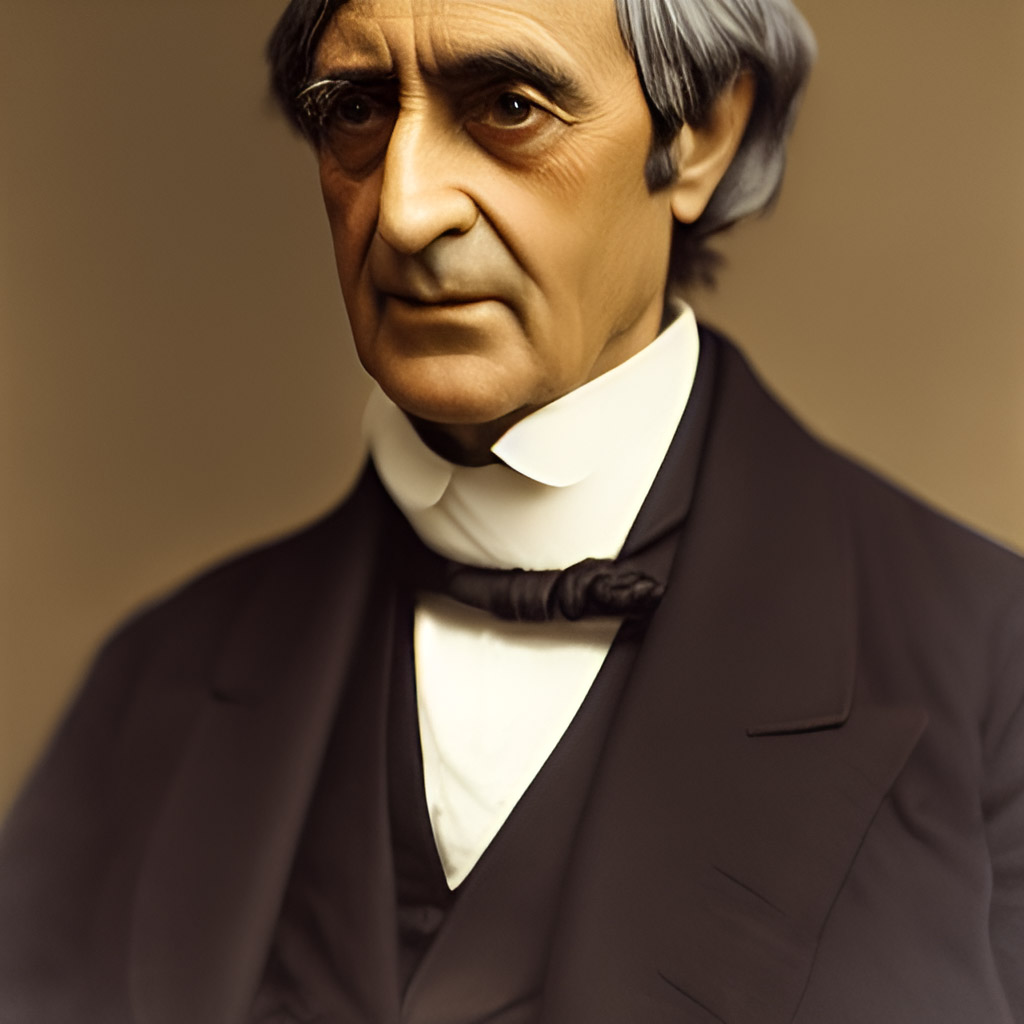Ralph Waldo Emerson: The Transcendentalist Philosopher and Essayist
Ralph Waldo Emerson was an American philosopher and essayist who played a significant role in the transcendentalist movement of the 19th century. He was a prolific writer and speaker, known for his powerful and inspiring words that challenged traditional beliefs and values. In this article, we will delve into the life, works, and philosophy of Ralph Waldo Emerson.
Introduction
Ralph Waldo Emerson was born in Boston, Massachusetts in 1803. He was the son of a Unitarian minister, and grew up in a household that valued education and intellectual pursuits. From an early age, he showed a love of reading and writing, and was particularly interested in the works of the ancient Greeks and Romans.
Emerson went on to study at Harvard College, where he was exposed to the ideas of German philosophers such as Immanuel Kant and Friedrich Schiller. After graduation, he began a career as a schoolteacher and later as a minister, but eventually found his true calling as a writer and thinker.
Early Life and Education
Emerson was born into a family of intellectuals. His father, William Emerson, was a Unitarian minister, and his mother, Ruth Haskins Emerson, was a devout Christian. He had seven siblings, and the family was known for their lively discussions and debates on a wide range of topics.
Emerson was educated at Boston Latin School and Harvard College, where he excelled in his studies. He was particularly interested in the classics, and spent much of his time reading the works of ancient Greek and Roman philosophers.
Ministerial Career
After graduation, Emerson briefly worked as a schoolteacher before deciding to pursue a career in the ministry. He was ordained as a Unitarian minister in 1829, and began preaching at the Second Church in Boston.
Emerson’s early sermons were well-received, and he quickly gained a reputation as a dynamic and inspiring speaker. However, he soon began to question some of the fundamental tenets of Christianity, and in 1832, he resigned from the ministry.
Book Recommendation: Emerson’s Essays – The Complete First and Second Series
Transcendentalism
After leaving the ministry, Emerson began to explore new ideas and philosophies. He became involved in the transcendentalist movement, which was a group of writers and thinkers who believed in the power of the individual and the importance of nature.
Emerson’s essay “Nature,” published in 1836, is considered a seminal work of transcendentalist literature. In it, he argues that nature is the source of all wisdom and that individuals should seek to connect with the natural world in order to achieve a greater understanding of themselves and the universe.
Literary Works
Emerson went on to write a number of influential essays and speeches on a wide range of topics. His essay “Self-Reliance,” published in 1841, is perhaps his most famous work, and is a call to individualism and nonconformity.
Emerson was also a prolific poet, and his poetry often reflects his transcendentalist beliefs. Some of his most famous poems include “The Rhodora” and “Brahma.”
Philosophy
Emerson’s philosophy can be summed up in his belief in the power of the individual. He believed that each person has a unique and important role to play in the world, and that the pursuit of knowledge and self-discovery is the key to a fulfilling life.
Emerson also believed in the importance of nature, and saw it as a source of spiritual and moral guidance. He believed that by connecting with nature, individuals could achieve a greater understanding of themselves and the universe.
Emerson’s philosophy also included a rejection of traditional authority and a call for individuals to think for themselves. He encouraged nonconformity and urged people to trust their own instincts and beliefs.
Discover the transformative power of wisdom with Ralph Waldo Emerson’s timeless quotes
Influence and Legacy
Emerson’s writings and philosophy had a significant impact on American literature and thought. His ideas influenced a number of other writers and thinkers, including Henry David Thoreau, Walt Whitman, and Margaret Fuller.
Emerson’s legacy also includes his role as a mentor and friend to younger writers and intellectuals. He was known for his kindness and generosity, and often went out of his way to support and encourage others.
Conclusion
Ralph Waldo Emerson was a powerful and influential voice in American literature and thought. His ideas on individualism, nature, and nonconformity continue to inspire readers and thinkers today, and his impact on American culture cannot be overstated.

